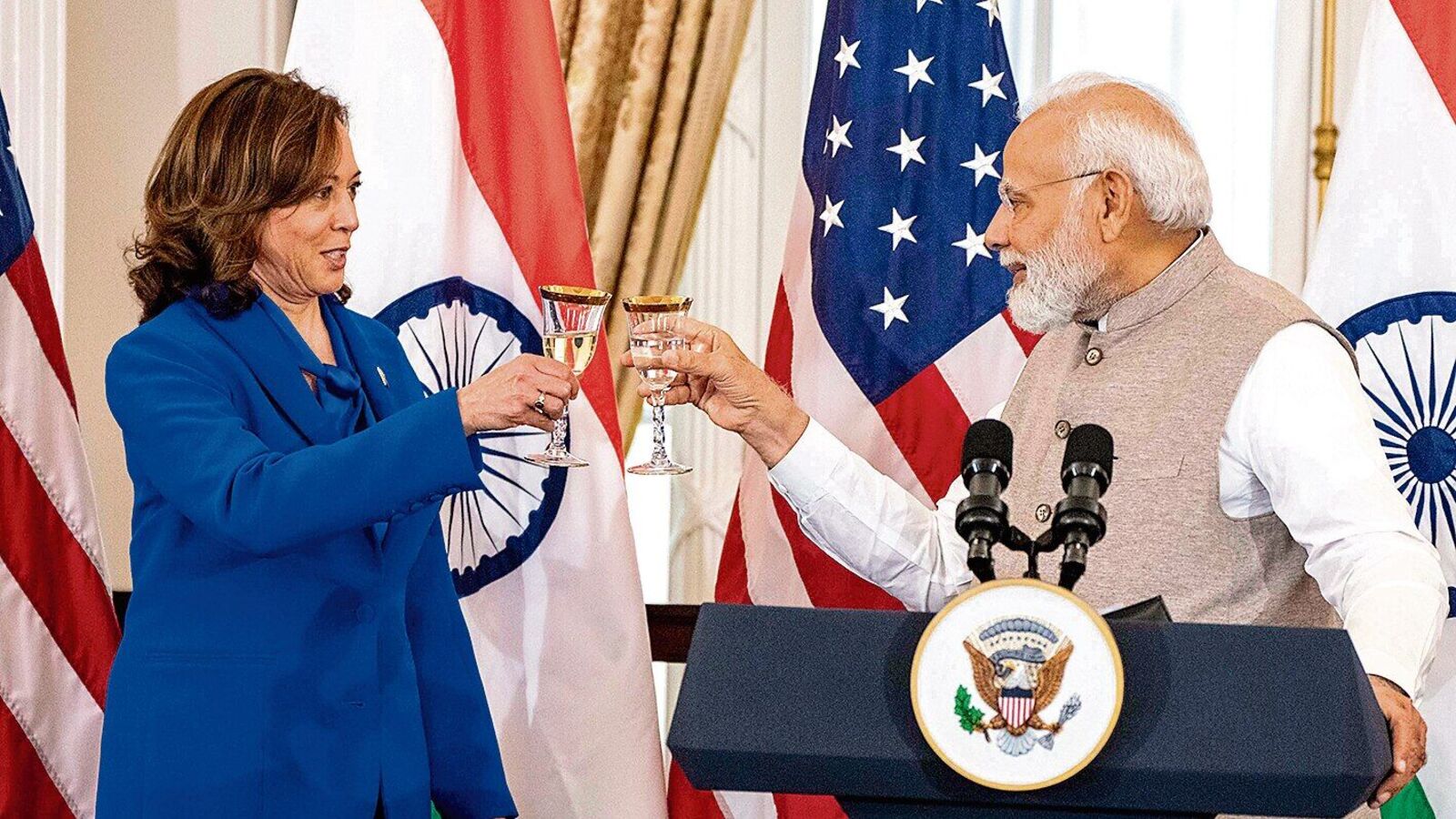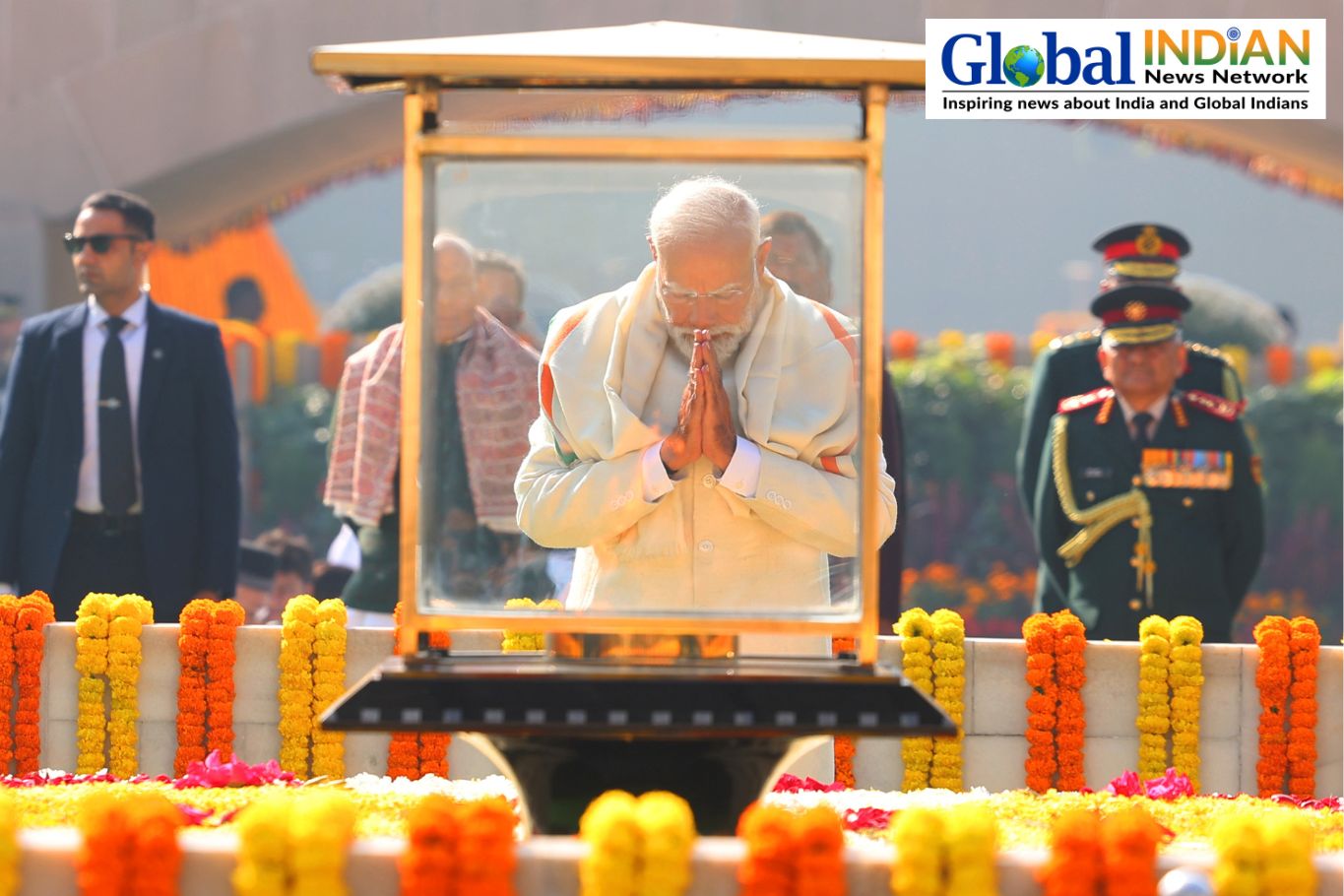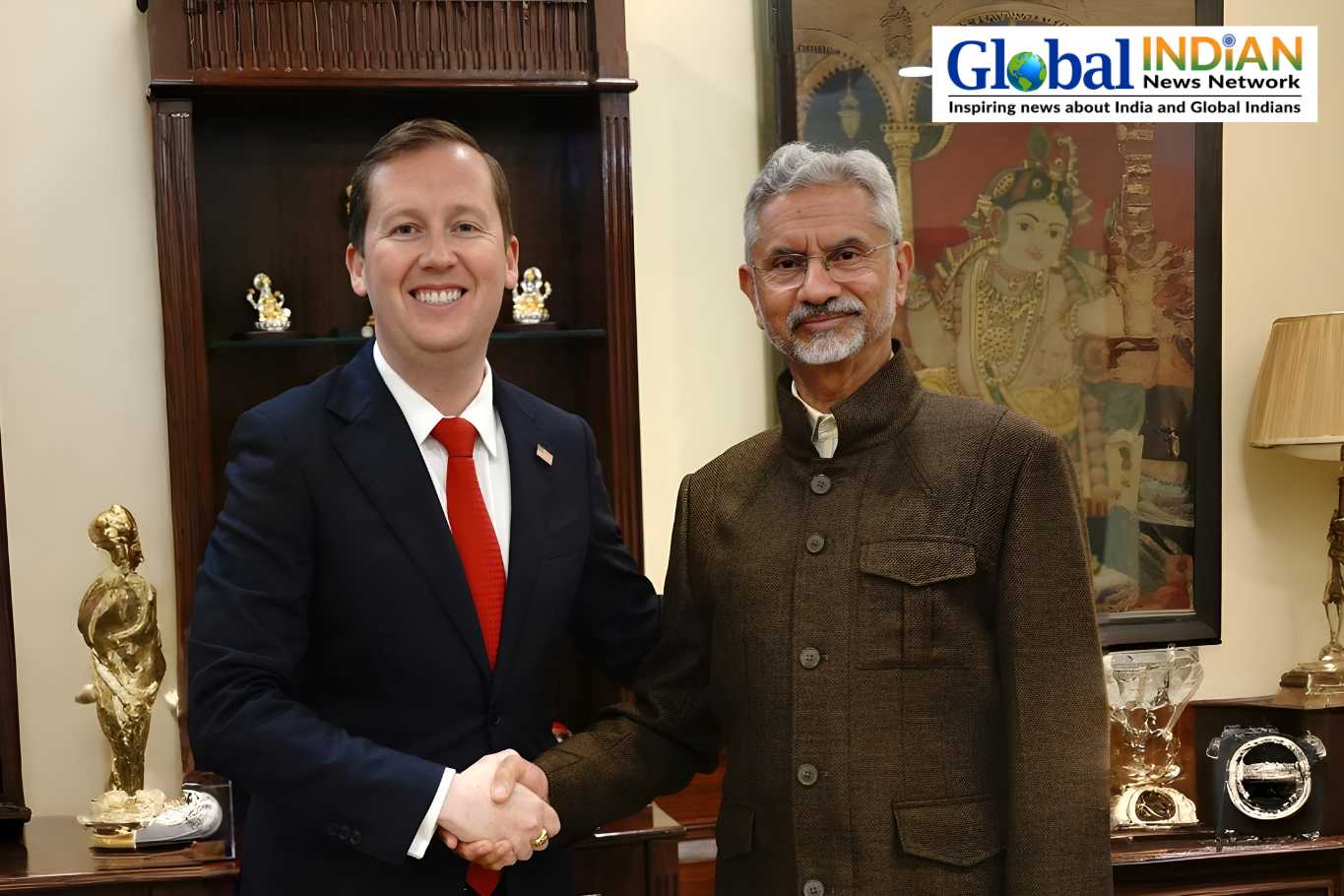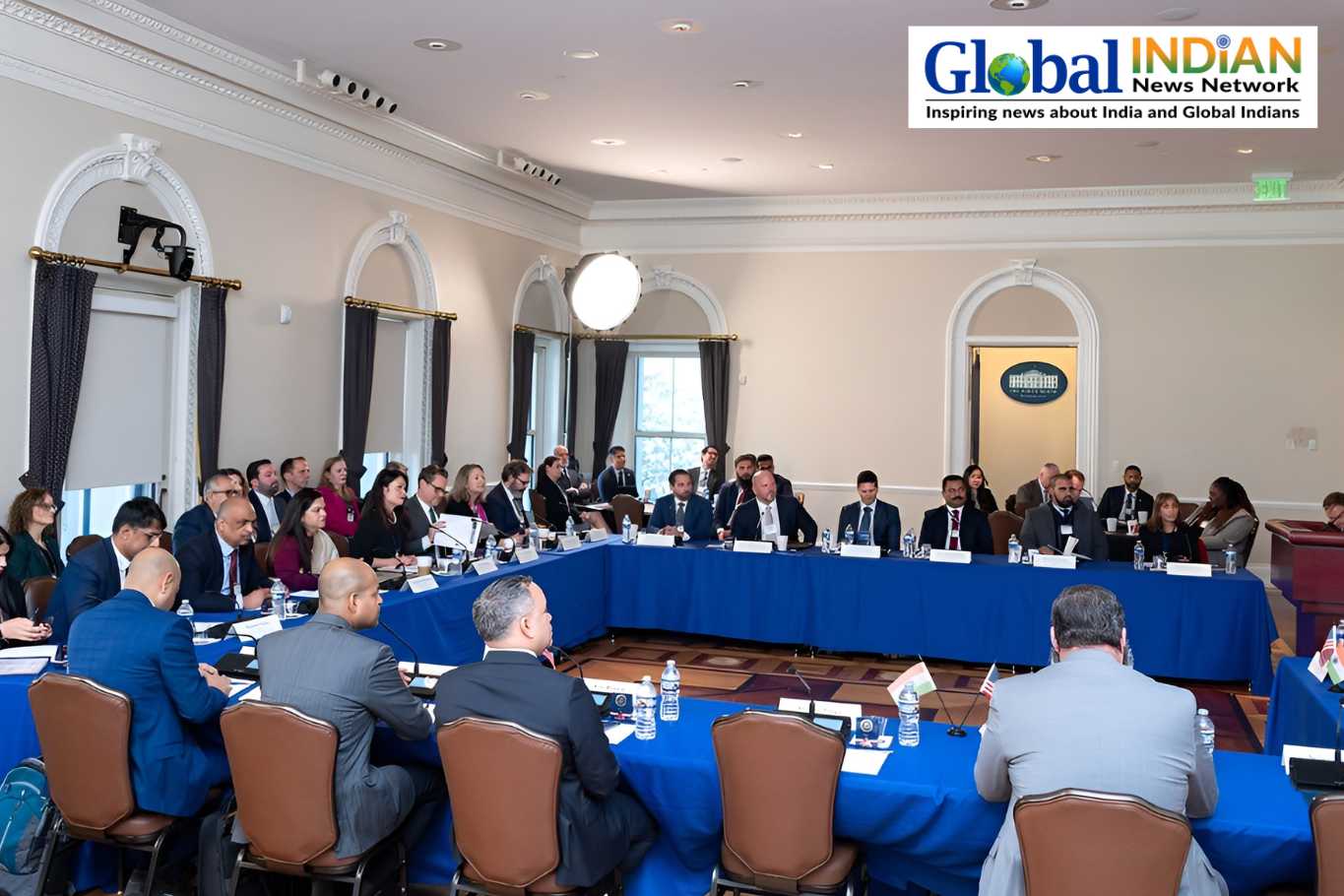
Photo Courtesy : X.com
As the political landscape in the United States undergoes significant changes, with Kamala Harris stepping into the spotlight as a presidential candidate, questions arise about what her administration could mean for various stakeholders, including India, Indians, and the Indian American community. Despite the widespread celebration of Harris’ Indian heritage, her actions and political inclinations indicate that a Harris presidency may not yield significant benefits for these groups. Here’s why.
Connection to Her Indian Roots
Kamala Harris, the daughter of an Indian mother from Tamil Nadu, has a mixed cultural heritage that includes both Indian and Jamaican influences. However, throughout her political career, Harris has not prominently highlighted her Indian roots. For instance, despite her Indian heritage, Harris has primarily aligned herself with the African American community, both in identity and advocacy. This has left many in the Indian American community feeling neglected and questioning her commitment to her Indian heritage.
Indrani Bagchi, a foreign policy commentator, notes that Harris has “deliberately downplayed” her Indian roots. While this may be a strategic political decision, it certainly does not endear her to those who had hoped she would champion issues relevant to India and its diaspora. Her focus has often been on issues affecting African Americans, which, while crucial, has left her Indian background completely out of the narrative.
Lack of Engagement with the Indian American Community
One would expect someone of Indian descent to have stronger ties with the Indian American community, especially in regions with a significant Indian population, such as California, where Harris built her political career. However, prior to her rise as a prominent national figure, Harris rarely participated in events organized by the Indian American community in San Francisco or elsewhere. This lack of engagement has not gone unnoticed.
One could view Harris’s perceived distance from her Indian roots and the Indian American community as a missed opportunity to forge a more diverse coalition of support. For many Indian Americans, who are proud of their heritage and actively contribute to their communities, Harris’s aloofness is disappointing. It raises concerns about her willingness to advocate for issues that matter to them if elected president.
A tense relationship with India
India-U.S. relations have historically oscillated depending on the administration in power, with recent years witnessing a more robust partnership. Some worry that a Harris administration may not be as friendly to India as her predecessors. This concern stems from Harris’s occasional comments on sensitive Indian issues, such as Kashmir. Her criticism of India’s revocation of Article 370 in Jammu and Kashmir, which many saw as a domestic matter, did not sit well with the Indian government and its supporters.
Moreover, Harris has shown support for U.S. politicians like Representative Pramila Jayapal, who are vocal critics of India’s domestic policies. India’s external affairs minister canceled a meeting with U.S. lawmakers over Jayapal’s inclusion, prompting Harris to defend Jayapal on social media as a clear signal of her stance. Such actions indicate that a Harris administration might be more inclined to publicly criticize India on human rights and democracy issues, a departure from the more nuanced approach seen in other U.S. administrations.
A Missed Opportunity for Diplomacy
One significant point of critique is Harris’s lack of proactive diplomacy toward India. While she has visited countries in Africa and Latin America, her absence in India raises eyebrows. Despite her Indian heritage, she has yet to visit India as Vice President. This absence suggests a lack of prioritization of India in her foreign policy agenda, which could continue if she becomes president.
While she has met Prime Minister Narendra Modi, their interactions have lacked the warmth and personal chemistry that Modi shares with leaders like former President Donald Trump. During his presidency, Trump’s grand visit to India was a testament to his efforts to solidify a personal and strategic partnership with India. In contrast, Harris’s approach has been more reserved, leaving doubts about whether she would invest the same level of effort in nurturing India-U.S. relations.
A Confrontational Stance on India’s Domestic issues.
A Harris administration is likely to uphold the Democratic Party’s emphasis on human rights and democratic values. While these are undoubtedly important issues, India has often viewed external criticism of its internal matters with suspicion and resentment. The Biden administration has managed to maintain a balance between advocating human rights and strengthening strategic ties with India. However, given Harris’s past comments and her alignment with progressive politics, there is a risk that she might adopt a more confrontational stance on India’s domestic issues.
Such an approach could strain the warming ties between the two nations, especially when the U.S. is seeking a strong partner in the Indo-Pacific to counterbalance China’s influence. A Harris presidency could bring a shift in focus, placing greater emphasis on human rights concerns over strategic alliances, potentially complicating the bilateral relationship.
A Missed Opportunity for a Stronger India-U.S. Partnership
Ultimately, the concerns about a Harris presidency are not just about her lack of emphasis on her Indian heritage or her political stance on India’s internal matters. It is also about the missed opportunities to strengthen the India-U.S. partnership further. The Biden administration, with its experienced foreign policy team, has laid a solid foundation for India-U.S. relations, focusing on strategic issues such as security in the Indo-Pacific, economic cooperation, and counterterrorism. Harris’s lack of a strong foreign policy portfolio and her focus on domestic issues could lead to a deprioritization of India in the U.S.’s foreign policy agenda.
A Cautious Approach Needed
While Kamala Harris’s rise to the presidency would be historic and a moment of pride for many, it is essential to consider what her leadership would mean for India, Indians, and Indian Americans. Her previous lack of engagement with her Indian roots, her limited interaction with the Indian American community, and her stance on India’s domestic issues all point towards a more cautious and perhaps critical approach to India. As such, while the strategic relationship between the U.S. and India will likely continue, it may not reach the levels of warmth and cooperation seen in recent years under a Harris administration.
For those invested in the future of India-U.S. relations, a careful and watchful approach is necessary. Building strong bilateral ties requires not only strategic interests but also a deep understanding of each other’s cultural and domestic contexts—a trait that Harris, despite her Indian heritage, has not fully exhibited.

Raj Shah
Editor-in-Chief











